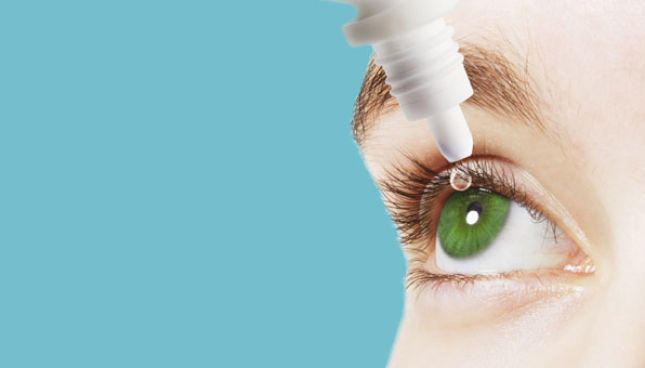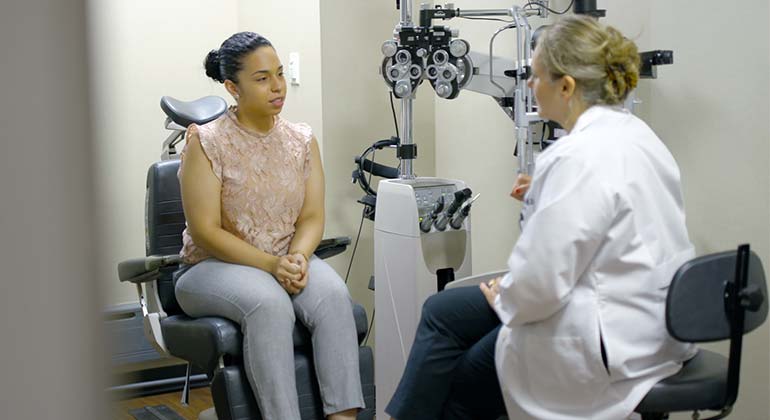Andalusia Pediatrics: Exceptional Take care of Children's Health Needs
Andalusia Pediatrics: Exceptional Take care of Children's Health Needs
Blog Article
Is Refractive Surgical Treatment Right for You? Elements to Take Into Consideration for Better Eyecare
In the world of eye treatment, the choice to undergo refractive surgical procedure is a substantial one that demands thoughtful factor to consider. As people look for clearness and flexibility from the restrictions of corrective lenses, countless elements come into play when establishing the viability of such a procedure. From the ins and outs of one's ocular wellness to the complexities of individual expectations and everyday routines, each aspect holds significance in the broader landscape of refractive surgery candidateship. By evaluating these crucial elements with treatment and accuracy, a more clear path towards educated decision-making arises.
Eye Wellness Examination
When thinking about refractive surgical treatment, a thorough eye health and wellness evaluation is critical to examine the viability of the procedure for each and every person. andalusia pediatrics. This assessment involves a collection of tests and exams conducted by an eye care specialist to establish the total health and wellness of the eyes, the visibility of any underlying problems, and the security of the refractive mistake
Throughout the evaluation, different factors are thought about, such as the person's medical history, existing eye prescription, corneal density, student size, and tear movie top quality. These assessments assist to determine any kind of contraindications to refractive surgery, such as corneal problems, cataracts, or neglected eye infections. In addition, the examination aids to take care of patient assumptions regarding the prospective outcomes of the surgical procedure based upon their one-of-a-kind eye qualities.
Inevitably, the eye health evaluation is vital in guaranteeing the safety and efficiency of refractive surgical treatment, as it offers useful understandings right into the individual's eye health standing and assists establish the most ideal therapy options for achieving ideal visual results. (andalusia pediatrics)
Way Of Life Assessment
A comprehensive way of living evaluation is essential in figuring out the viability of refractive surgery for an individual's visual improvement needs. Way of life elements such as profession, pastimes, and day-to-day tasks play an important role in the decision-making process relating to refractive surgery. For instance, individuals with occupations that include a high degree of physical activity or direct exposure to ecological elements might have different visual requirements compared to those with inactive workdesk tasks. Understanding just how an individual's lifestyle may affect their vision post-surgery is necessary for handling assumptions and ensuring optimum results.
Moreover, way of life habits such as sporting activities engagement, outside activities, or also skincare routines can affect the healing procedure and general success of refractive surgery. By performing a detailed way of life evaluation, eye treatment specialists can customize their referrals and therapy strategies to fulfill the special requirements of each individual, ultimately leading to improved aesthetic results and complete satisfaction.
Assumption Positioning

Establishing practical assumptions involves complete pre-operative conversations between the client and the ophthalmologist. The specialist needs to transparently communicate the prospective dangers, benefits, and restrictions of the treatment (neurologist andalusia). Clients require to comprehend that while numerous people achieve 20/20 vision or much better adhering to refractive surgical procedure, some might still call for glasses for sure activities like reading or driving at evening. Taking care of these expectations helps protect against frustration and discontentment post-surgery, causing an extra positive total experience for the individual.
Danger Evaluation

Aspects that might increase the threat of issues include age, particular clinical conditions like autoimmune conditions, unsteady vision prescription, thin corneas, and unrealistic patient expectations. In addition, choosing a knowledgeable and experienced specialist, complying with pre and post-operative treatment directions diligently, and disclosing any type of pertinent clinical history can assist mitigate dangers.
To lessen the probability of complications, ophthalmologists perform detailed pre-operative analyses to identify any kind of contraindications to surgery. They additionally talk about the prospective risks and benefits with patients during the assessment procedure. By taking part my response in open interaction and shared decision-making, both the individual and the ophthalmologist can interact to figure out if refractive surgical treatment is the best selection based on individual threat accounts and preferred outcomes.
Appointment Value
Considering the critical duty of informed decision-making in analyzing risks and possible complications in refractive surgical procedure, the examination procedure holds considerable importance in assisting people towards optimal outcomes. Throughout the assessment, the eye doctor reviews the client's eye health, refractive mistakes, and overall viability for surgery. This initial analysis is essential in determining the most suitable treatment for every individual, taking into consideration aspects such as corneal thickness, pupil dimension, and existing eye conditions.
Moreover, the consultation offers as a chance for clients to discuss their assumptions, issues, and any type of questions they may have regarding the surgical treatment. Clear interaction between the doctor and his response the individual is crucial to make sure reasonable expectations and a detailed understanding of the possible threats and advantages entailed.
Additionally, the assessment enables the doctor to clarify the different surgical alternatives available, their corresponding results, and the post-operative treatment called for. This comprehensive conversation empowers clients to make well-informed decisions concerning their eye treatment, bring about better satisfaction and results post-surgery.
Conclusion
Finally, people considering refractive surgical procedure ought to go through a comprehensive eye wellness evaluation, evaluate their way of life routines, align their assumptions with potential outcomes, analyze the involved risks, and prioritize examinations with eye care professionals. These aspects play a critical function in establishing the viability of refractive surgical treatment for every individual, ensuring optimum outcomes and contentment with the procedure.
People thinking about refractive surgical treatment usually have high assumptions relating to the outcomes, expecting perfect vision without the demand for glasses or call lenses. While refractive surgical treatment can substantially improve vision and reduce reliance on aesthetic aids, it is important for patients to understand that outcomes may differ based on individual variables such as the degree of refractive mistake, corneal density, and total eye health.
By involving in open interaction and shared decision-making, both the eye doctor and the client can function with each other to determine if refractive surgical treatment is the right anonymous option based on specific risk profiles and preferred end results.
Thinking about the vital duty of educated decision-making in assessing dangers and potential issues in refractive surgical treatment, the assessment process holds significant importance in assisting clients towards optimum end results. Throughout the assessment, the ophthalmologist reviews the person's eye health, refractive errors, and total suitability for surgery.
Report this page